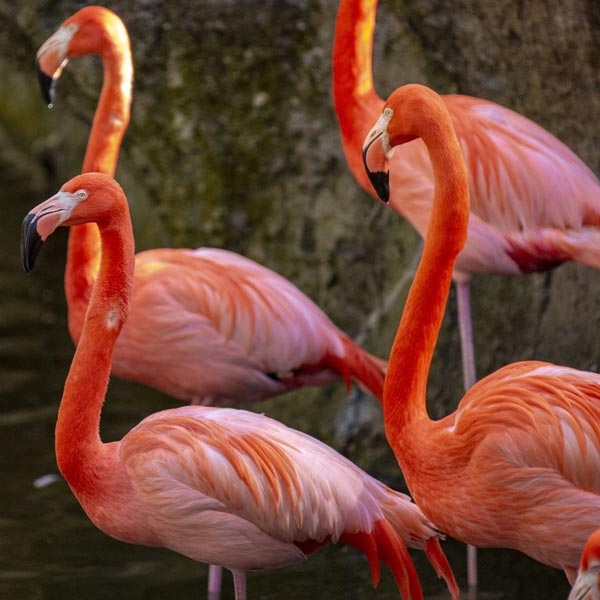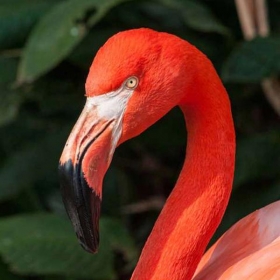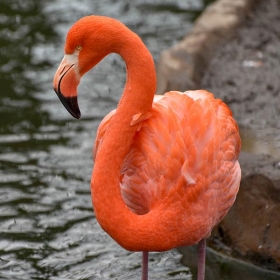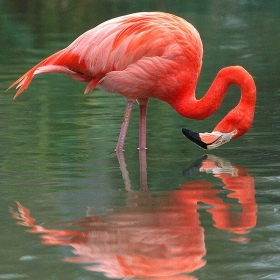
Flamingo
Flamingos or flamingoes are a type of wading bird in the family Phoenicopteridae, the only bird family in the order Phoenicopteriformes.
Four flamingo species are distributed throughout the Americas, including the Caribbean, and two species are native to Africa, Asia, and Europe.
Animal Behavior: Flamingos live in large colonies, oftentimes numbering into the thousands of individuals. Flocking is generally a protective mechanism for a species, where an entire group can be alerted to the presence of a predator.
Native Habitat: South America.
Eating Habits: Flamingos are not selective in their diet. Anything that can be captured by their filtration feeding method appears to be consumed. Stomachs of wild flamingos have been examined, and flamingos appear to eat organic ooze (bacteria and microscopic organisms), worms, nematodes, molluscs, crustaceans, insects and larvae, and even vertebrates such as small fish. They will also consume vegetable matter. Though they can subsist on a wide variety of foods, small crustaceans are responsible for the bright pink pigment that flamingos are famous for.
Range: Hyper-saline estuaries are the preferred habitat. These habitats are often located near larger bodies of water such as coastal areas, sea inlets, rivers, and open lakes. Habitats are nearly always coastal, but they have been known to move inland to lagoons or volcanic lakes.
Conservation Efforts: Greater flamingos are currently considered to be non-threatened. Their large range allows them to be more resistant to local changes of habitat that could be more critical for shorter-ranged animals. Greater flamingos readily migrate in response to decreases in habitat quality. Furthermore, the wild population is quite large and both the range and population numbers of greater flamingos appear to be increasing.
Animal Facts: There is no set breeding season for flamingos, with young being born at any time of year. A pair of flamingos will usually lay a single egg once per breeding cycle. In the rare cases where two eggs are laid, usually only one will hatch. The egg is incubated by both parents, who take turns as the partner forages away from the nest. Flamingos live an average lifespan of 25 years in the wild with a maximum of 44 years. In captivity, flamingos live an average of 30 years. The oldest flamingo in the world is over 75 years old and resides at the Adelaide Zoo in Australia.



